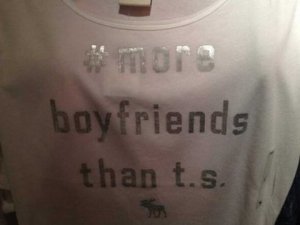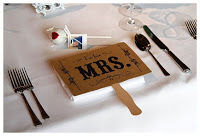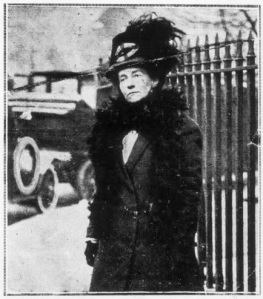The tech giants’ move to pay for their female employees’ eggs to be frozen so they can delay having children just confirms suspicions some women try daily to ignore – that employers don’t want or value women who have children.
Hannah Marsh has a radical idea – instead of changing biology, why not just change the system? We created it after all
I thought I was being paranoid.
“Of course nowadays we live in a fair enough society where successful women who are good at what they do can decide to start a family, take the time off they need to nurture their tiny infant and return to their job,” I reassured myself.
But it turns out no, I wasn’t being paranoid. For some companies – at least for Facebook and Apple – if you want to have a baby, it really does negate your value as an employee.
What other message is there to take from their announcement this week, that they would be offering to freeze female employees’ eggs so that those women could delay having the pesky children that so get in the way of being good at their jobs?
Oh right. They were being progressive. And fighting the good fight for equality.
Except offering to freeze a woman’s eggs is the very opposite of progress.
When Kirstie Allsopp spoke out about her feminist views earlier this year, she was roundly rebuked by many for airing opinions that included suggesting women skip uni, go straight to work, net a man, save for a flat and have a baby by the age of 27.
Her tone might have been a little, erm, unsubtle, but one thing she pointed out really stuck with me.
Her argument rested on the idea that women are expected to fit the one thing we can’t change – our biological clocks – around a working world designed by and for men, on the rather outdated assumption that child care wouldn’t be something they’d need to share in.
This move by Facebook and Apple just reinforces that system: except ‘progressives’ that they are, they have actually managed to suggest a way in which we can change our biological clocks.
And that puts the onus squarely on female employees, apparently forgetting that male employees are also part of the having-a-child-process, and says: ‘if you want children, you can’t work here, unless you’re willing to freeze your eggs, do it later and put yourself through a traumatic, often painful, emotionally fraught and very possibly unsuccessful version of trying for that further down the line.’
That’s not progressive in the slightest.
As a woman in my 30s, the child question is one I ponder regularly, and its a subject that’s chewed over by my peers too, both the ones with children and without.
I’ve seen my friends with children struggle to get back into work, witnessed how inflexible some of their workplaces are and how passive aggressive their colleagues can be. And that’s just the mums. When one of my male friends approached his boss about changing his hours to share childcare with his wife, he was met by blank confusion, and from some colleagues, outright laughter.
One former colleague admitted she came back to work four weeks after giving birth – yes, four weeks – because she was worried she wouldn’t have a job to come back to if she didn’t.
Which makes me think that real progressiveness, real moves towards equality, actually accept that children are a fact of life. Most people want them. Men and women. And we no longer live in a world where men dominate our workplaces.
Many women also want to work, and they’re not suddenly rubbish at their jobs because they’ve given birth. And many men too would like to spend more time with their children. They’re not rubbish parents because they’re men.
So real progressiveness means flexibility for both parents, and accepting that perhaps our old-fashioned system, designed for one parent to work in while the other stayed at home, is the real problem here, not the fact that women inconveniently happen to give birth.
It’s quite simple really, instead of re-inventing our biological systems, how about we just re-invent our own working practise?
There are so many reasons for doing this anyway. Every few years a new report comes out disproving the link between long hours and productivity – and yet we still think that a good measure of proof of our ability to work hard and appear committed to our jobs is to put in longer and longer hours.
It’s time for change. And that change really, really doesn’t have to be to the way we reproduce.
So here are some suggestions for any other companies wondering how they can be genuinely progressive, without emotionally blackmailing women into changing their biological systems to feel secure in a job.
• Put some of that money you’re spending on egg freezing towards paternity leave for your male staff. Once their baby is old enough not to be physically dependant on its mother’s milk, some men might actually like the chance to take some of the parental leave themselves, while their partner makes steps to returning to work, knowing that they’re supported by their loved one and that they’re not leaving their baby with a stranger.
• Pay women the same as male staff. Pretty basic. But still not happening. When women and men are on an even earning keel, it’s possible that some of the expectations on women to be the one to give up work might be lifted, and allow massive decisions like who’s going to jeopardize their career to be made in a more equal situation that’s personal to the individuals. Who knows, perhaps if we ever get to that stage, parents who stay at home, full or part time, won’t actually have to jeopardize their career because there will be a system that genuinely accommodates the inconvenient fact that is reproduction of the human race.
• Don’t proudly unveil policies that literally state that women who choose to have children naturally are pretty much guaranteed to not be valued by your company. It’s pretty unwelcoming.
• Don’t be so ignorant to think that by allowing women to have children later in life you’re solving their ‘problem’. What about the worries over whether our children will know their grandparents? And whether we’ll be fit enough to run around and play football with them? By pushing couples to have children later rather than supporting them to have them earlier, you’re ignoring a whole other set of anxieties and questions.
• Introduce more part-time and job share roles. And actively recruit men to them. I’m not a fan of one-gender shortlists as an ultimate solution to gender inequality, but I think they’re a great way of breaking down a barrier and levelling the playing field to a point where some progress can be made. If more men were recruited into part-time and job-share roles, it wouldn’t seem so taboo for them to go out and look for them, and, shock horror, plenty would also appreciate the opportunity to split work and childcare commitments.
Non of these suggestions are going to change the world. But they’d be a more progressive start than the policies put forward by Facebook and Apple.
If you have suggestions on how you might like to see change in the workplace – that mean you don’t have to alter biological functions – let us know.










